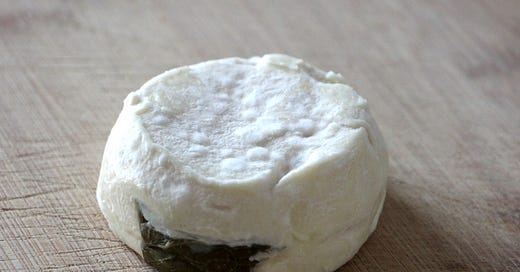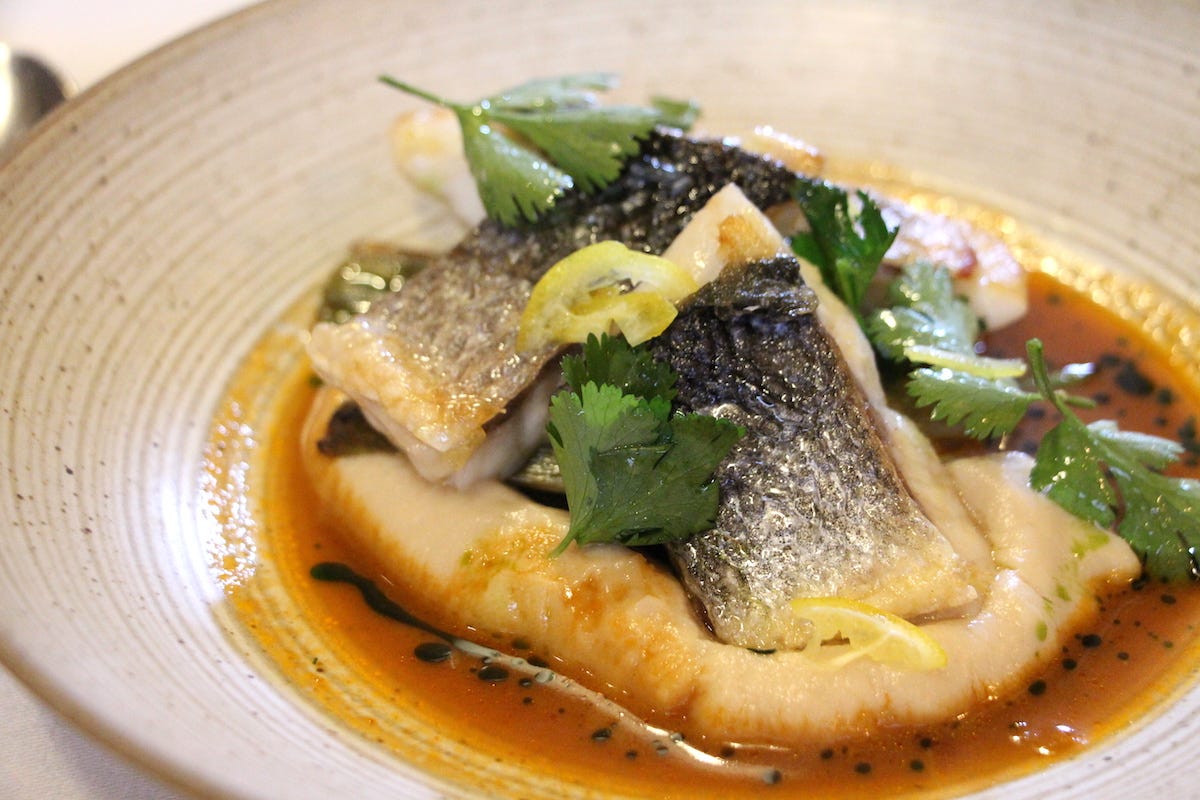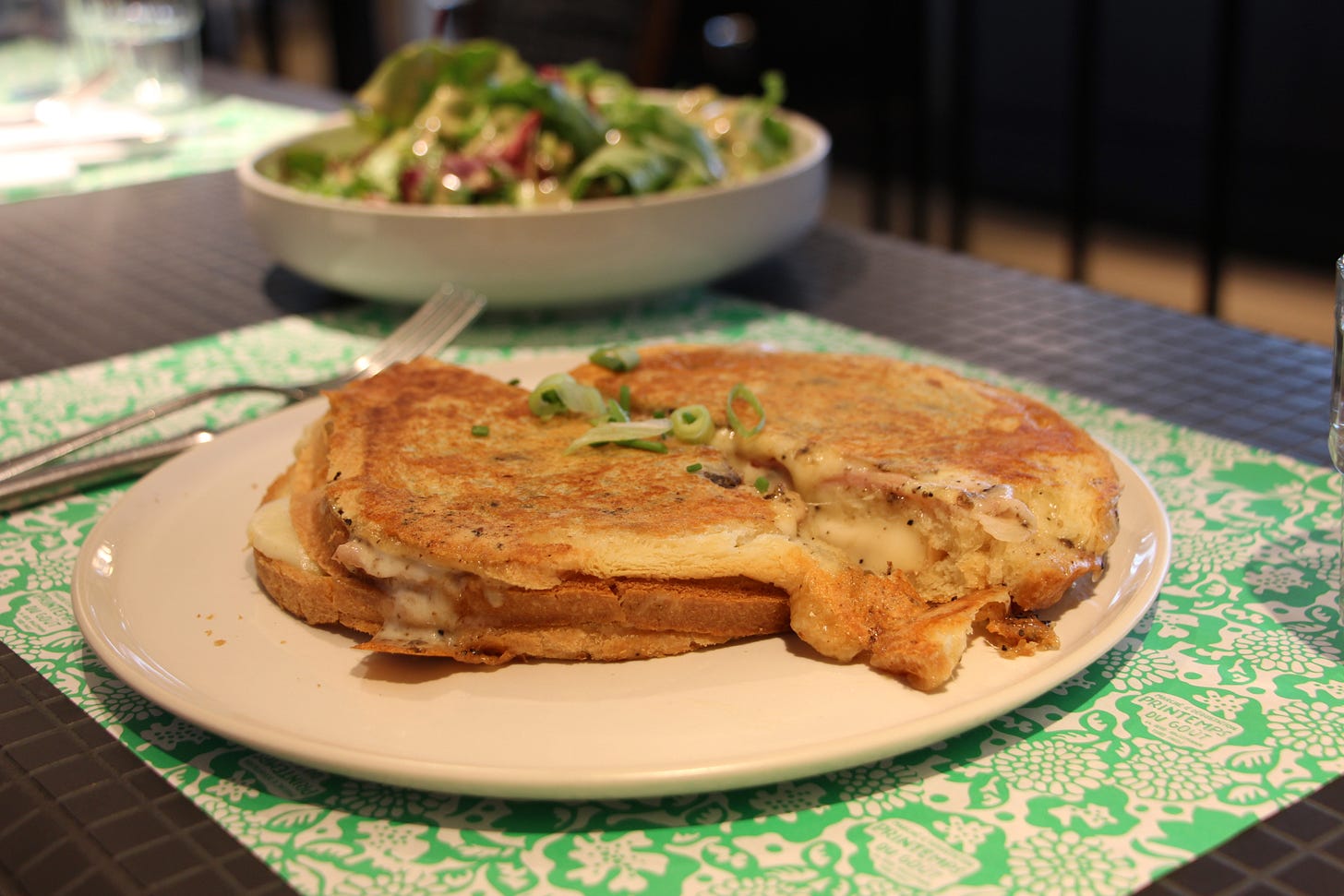I spend a lot of time thinking about language. I’ve always loved languages, from my first brushes with French at the tender age of nine. But these days, language pervades my thoughts almost incessantly, and I’m not just talking about the fact that writing and translating are my bread and butter.
Most of my texts with my brother are linked to etymology. (Did you know, for example, that warrantee and guarantee come from the same Norman root?) I'm obsessed with idioms, so much so that I keep a running list of my faves in both French and English. (It shoulld come as no surprise that most of them are related to food.) Every time Eric Singer releases a new YouTube video, I pounce. I have a linguistic podcast, for crying out loud.
And while I ultimately ended up graduating undergrad with a degree in Communications, my first major, Linguistics, was instrumental in establishing a base for my continued explorations of the origins of words, the slight differences in accents, and phonetics. To wit: my friends and I frequently spent evenings in first year sitting around the residence hall common room, experimenting with voiced and voiceless consonants, much to the annoyance of our hallmates.
Which brings me to my linguistic gripe of the day: the French word ennuyant, which lacks, to my American mind, a suitable translation.
I love those lists of untranslatable terms forever making the rounds on social media, so evocative in encapsulating emotions or thoughts for which English has no adequate term. But my issue with ennuyant isn't that it doesn't have a translation, but rather that it doesn't have just one translation. While etymologically linked to ennui, the French word ennuyant is far less melancholy and romantic than most Anglophones would imagine. Indeed, the word (and its less polite synonym chiant) can be translated as both “boring” and “annoying,” and to my mind, there’s a world of difference between the two.
Of course, there are differences in usage: Je m’ennuie means “I’m bored.” But tu es ennuyant could mean either “You're annoying me” or “You're boring me.” And while there are other words to describe annoyances – pénible, embêtant – there’s no stand-alone word for boredom. (Which means it’s no surprise, to me, that most of my French friends, in English, use “boring” when they mean “annoying.”)
What’s odd to me is that the two states of mind seem so diametrically opposed: Annoyance feels active; boredom passive. Annoyance feels heightened; boredom lethargic. The only similarity is perhaps that I was raised in a house, and by a mother, who believed that both were states of mind remedied by action. (“She's annoying me” would have always been met with the response, “Well, then, remove yourself.” “I’m bored”? “Well, then, I've got a job for you.”)
As someone who is frequently annoyed and has not felt bored in about ten years (par for the course, I think, for the self-employed) but still believes, with the richness of English vocabulary, in le mot juste, I can't help but wonder…
When the French use this word, are they describing a state closer to what I mean when I say bored or annoyed? Or, seeing as the two states of mind being so entangled in the language… are they feeling both at once? Are they annoyed at being bored? Bored of being annoyed? Or, in a place where to sit around and just… be is so prized, is boredom simply not a thing?
I don't have an answer, but if such musings are of interest to you as well, may I recommend this article in the New Yorker about the universality (or lack thereof) of our emotions? If nothing else, it’s definitely a cure for boredom.
Cheese of the Week
I’m currently still in New York, where the cherry blossoms are in full bud, on the precipice of blooming, so it seems the perfect time to feature the Sakura, a goat cheese infused with cherry blossom leaves. Most of the time, this chèvre appears in the form of a lingot or gold bar, but at Pierre Coulon's La Laiterie de Paris, the first cheese shop in Paris to produce cheese on the premises, it's a small disc boasting a fluffy texture and a floral, grassy flavor with just the barest hint of fruitiness. If you've never given it a taste, I beseech you: It’s like nothing you’ve ever tried before.
Camembert is governed by a particularly problem-ridden AOP, but this delicious version from 5 Frères doesn't actually boast the label at all.
To discover more of my favorite cheeses, be sure to follow me on Instagram @emily_in_france, subscribe to my YouTube channel, and tune into the Terroir Podcast, where Caroline Conner and I delve into France's cheese, wine, and more one region at a time.
What I’m Eating
The first time I visited the little bistro now known as Parcelles, it was Paris’ foremost address for dining on horse meat. But while Le Taxi Jaune has since driven off into the sunset, there’s something of the Old World appeal in this upmarket bistro in the heart of the Marais, where French classics get just the right touch of contemporary flair in a homey space with tiled floors and pristine white tablecloths, all dominated by a beautiful bar. More on the blog.
Where I’m Going
1. To watch Becomes a Woman, the never-before-seen play by one of my childhood faves, Betty Smith.
2. To Birds of a Feather for a lunch that promises to be delicious (and spicy!)
3. Back to Paris, where, among other things, I’ll be meeting with Yves Camdeborde for a very exciting feature forthcoming in the BBC.
What I’m Writing
1. If you’re looking for ways to incorporate more melted cheese into your winter diet, I’ve got a couple of spots to put on your radar. For Paris by Mouth.
2. There's more to the Midwest's terroir than corn (and walleye). For InsideHook.
3. Chef Fernando Salazar of Platea shares how to make his rack of lamb inspired by pollo a la brasa. For InsideHook.
What I’m Saying
If you believe the news, you may think that the French are constantly on strike. But in spite of the fact that Paris is at a standstill today, the reality is a lot more nuanced, as Emma Pearson, editor of the Local, is here to explain. We delve into the significance of the word grève as it pertains to the French character and the very fabric of social life here. (That this episode’s recording was pushed back twice due to strikes is… well, probably par for the course.)
What I’m Reading
1. This story details one Fascist, Futurist attempt to do away with pasta in Italy – and provides the recipe that resulted. In Atlas Obscura.
2. I’m kind of awful at “hanging out,” mainly because I am a terrible over-scheduler. But reading this story reminded me of how, in high school, I used to literally go to my friend’s dorm room and lounge on her bed (occasionally taking a nap in the process) while she did homework, and I’m sad to think that there’s a whole generation of adolescents who are going to be deprived of doing-nothing-together. (And I’m also hoping that one plus side of committing to Doing Less as my New Year’s resolution for 2023 will indeed be more hangs.) In Slate.
3. I wish this story about trying to summarize the plot of my WIP didn't hit so close to home, but it does. (Please don't stop asking.) In McSweeneys.








